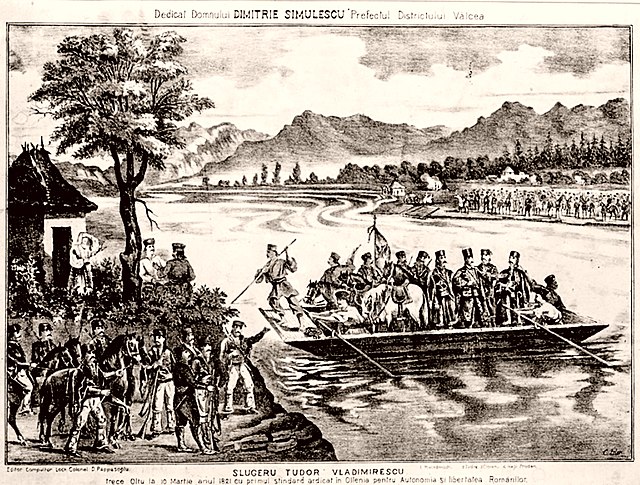Romanian literature is the entirety of literature written by Romanian authors, although the term may also be used to refer to all literature written in the Romanian language or by any authors native to Romania.
Icon of Neagoe Basarab and his son Teodosie
Stamp with the Romanian Literature Museum in Chișinău
Original Manuscript of Hieroglyphic History by Dimitrie Cantemir
Vasile Alecsandri
Wallachian uprising of 1821
The uprising of 1821 was a social and political rebellion in Wallachia, which was at the time a tributary state of the Ottoman Empire. It originated as a movement against the Phanariote administration, with backing from the more conservative boyars, but mutated into an attempted removal of the boyar class. Though not directed against Ottoman rule, the revolt espoused an early version of Romanian nationalism, and is described by historians as the first major event of a national awakening. The revolutionary force was centered on a group of Pandur irregulars, whose leader was Tudor Vladimirescu. Its nucleus was the Wallachian subregion of Oltenia, where Vladimirescu established his "Assembly of the People" in February.
Pandurs crossing the Olt River at Slatina, on May 10, 1821; the four men standing at the front of the barge are, from the left: Dimitrie Macedonski, Tudor Vladimirescu, Mihai Cioranu, and Hadži-Prodan. Lithograph by Carol Isler
Tismana Monastery, the Pandurs' original base
German print of 1821, depicting Fochianos and his Arnauts being massacred by Ottomans in Bucharest
Pandurs in Bucharest, with peasant women and wayside cross. Drawing by Michel Bouquet, 1841








